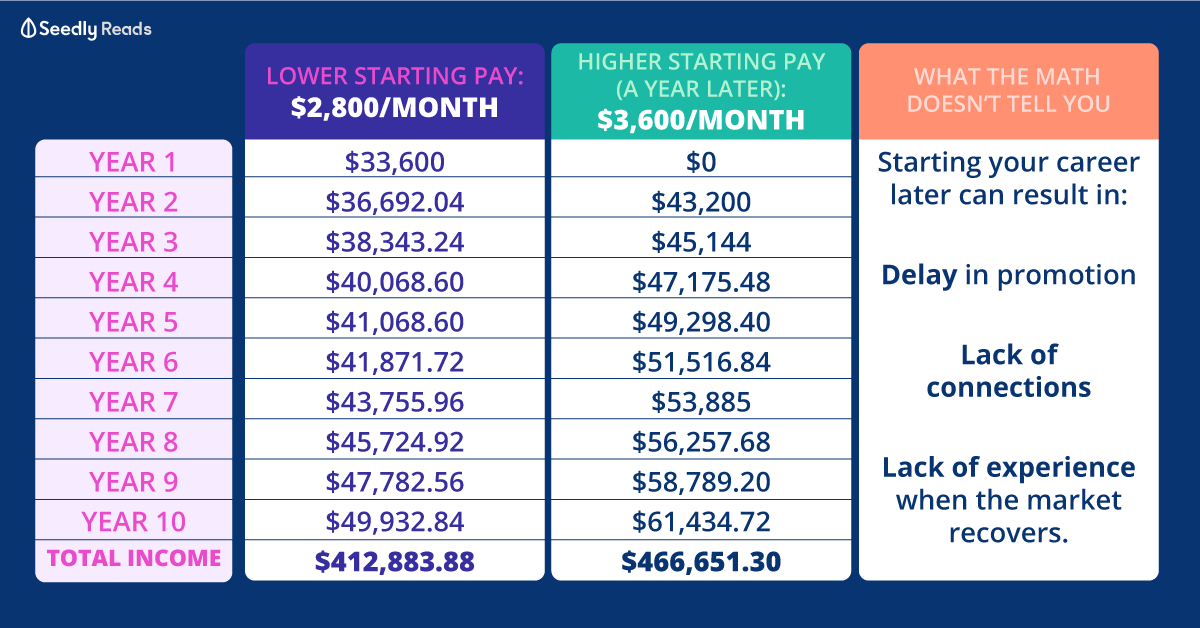Advertisement
Hi, I am a fresh graduate from a local university and I am keen to start on my (passive) investment journey. May I ask for the recommended approaches?
I have read up on numerous contents to enhance my knowledge about passive investments from multiple sources. But I am confused about the different terminologies offered. I intend to commit for a long term - since time in market is more important than timing the market - and leverages on the DCA strategy.
I am rather conservative and risk-adverse.
For a start, I have targeted several avenues:
- RSP (DBS Invest-Saver/OCBC Blue Chip Investment etc)
- SSB
- Robo-advisors (StashAway/Syfe etc)
2
Post Merged
This post is no longer accepting new comments because it has been merged with Fresh Grad not having idea on insurance and investment? What are some investment plans that I can be looking at?
Discussion (2)
Pang Zhe Liang
02 May 2020
Lead of Research & Solutions at Havend Pte Ltd
Reply
Save
Hey there! Great job on embarking on your investment journey!
The first few things you want to consider is whether you have an emergency fund that can last you for at least 6months to ensure you dont have to touch your investment in the event of a crisis. The next thing is to consider your risk profile and time horizon: how long do you want to stay invested for and how comfortable are you potentially not getting your desired returns/losing your principal? When it comes with passive investment, it's often a long-term affair. So you might want to use Dollar-Cost Averaging as a strategy (setting aside a sum of money everymonth to put in). For beginners, you might want to consider an ETF to track eg. Vanguard S&P500 etc. I wont recommend stock picking for beginners unless you have set aside time to do your own due diligence in researching on companies.
There are many platforms available eg. Roboadvisors like Stashaway are great for beginners :)
Financial planning is an integral part of life. You can find me at this platform to find out more.
Reply
Save
Write your thoughts
Related Articles
Related Posts
Related Posts
Advertisement








Investment Objective
Before you start investing, it will be best to understand your objective. Here are some questions to help you:
What is your capital?
How will you want to invest your capital? E.g. lump sum or an amount on a regular basis
How long will you want to stay invested? E.g. 10 years
What is your risk appetite? E.g. How do you feel about short-term volatility?
What is your objective for investing?
Through a well-defined investment objective, we will be able to create an asset allocation and use the right investment strategies that work for you.
Financial Instrument
However, if you are someone with low risk tolerance level, then investment may not be the best tool for you. This is because all investment yields only non-guaranteed returns and there will always be some form of investment risk.
More Details:
Types of Investment Risk that You should know
Instead, you may wish to explore other financial instruments that provide guaranteed returns, e.g. bonds, participating endowment, annuity.
More Details:
What is a Participating Fund Singapore
While the returns may not be spectacular as compared to the potential returns from an investment, you are protected against the downside. Therefore, such tools are definitely worthy considerations for your situation.
Investment Management
Of course, we can still choose to invest our money. But this will require more work as we attempt to create a well-built investment portfolio that fits your risk profile. Additionally, it helps to have professional advice from global investment firms like Mercer, BlackRock to aid us through this process. In detail, they are able to create an optimised portfolio that suits your risk appetite.
Moreover, we may also adopt investment strategies like dollar cost averaging to reduce short-term price risk.
More Details:
Dollar Cost Averaging
In any case, investing yields only non-guaranteed returns. Therefore, we will need to understand you in further detail before we can suggest the right solutions.
I share quality content on estate planning and financial planning here.